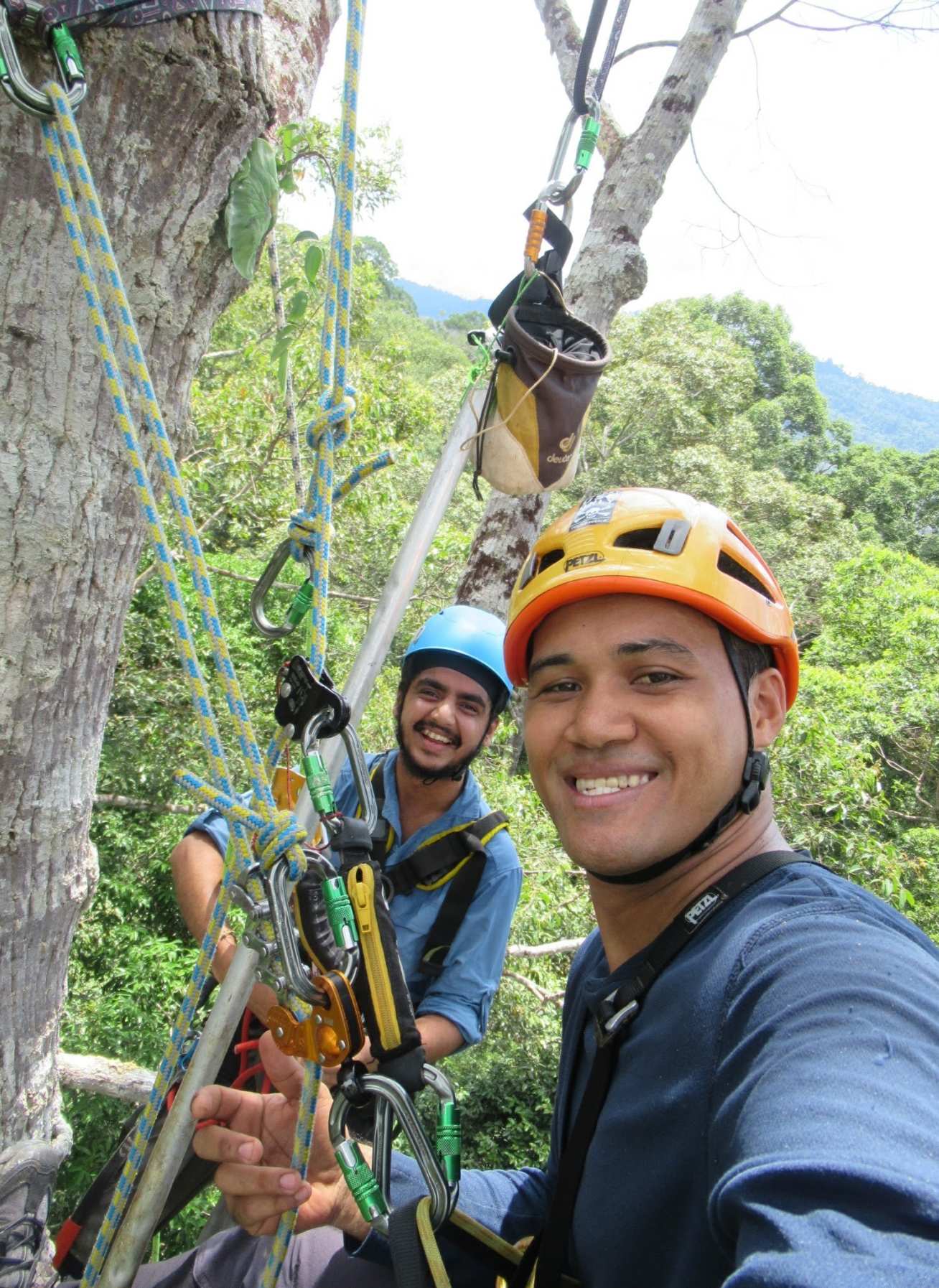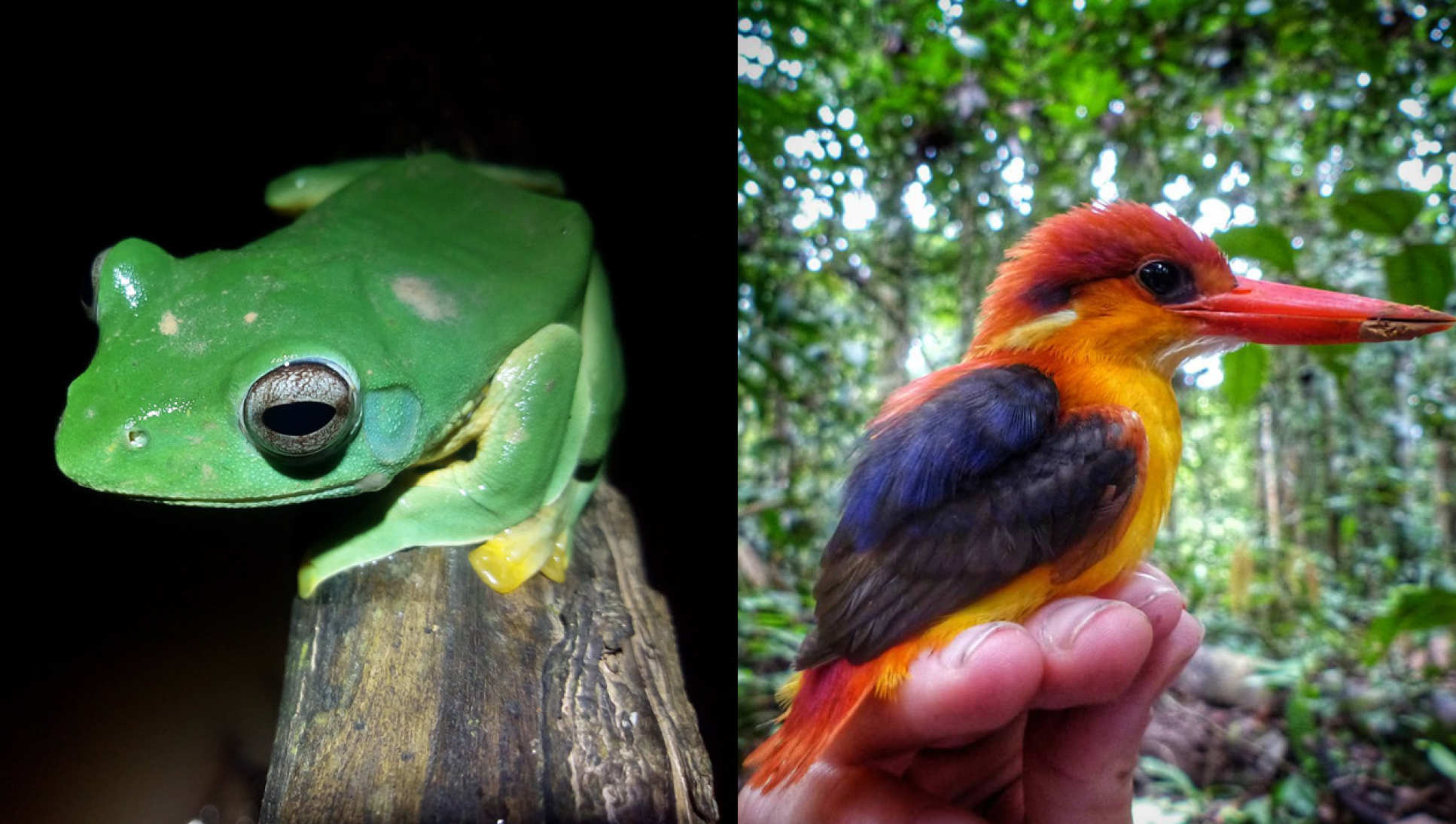Livestream the sounds of the rainforest and hear what changes logging makes
Award-winning low-cost audio recorders have been installed in the rainforest of Borneo, enabling researchers and the public to listen in 24/7.
The SAFE Acoustics website, funded by the World Wide Fund for Nature (WWF), streams audio from recorders placed around a region of the Bornean rainforest in Southeast Asia. Users can listen to live audio or skip back throughout the day, for example to listen to the dawn chorus.
Each location also displays animals that are commonly found in the area by researchers on the ground, along with recordings of the creatures’ distinctive calls, so users can try to pick out their voices among the noise.

The recorders have been installed by Imperial College London researchers as part of the SAFE Project – one of the largest ecological experiments in the world.
The project covers a huge area of rainforest in Borneo that includes old-growth forest, forest that has been partially logged (with only certain tree species removed), totally cleared forest, oil palm plantations, and specially preserved areas around waterways.
A team of local and international researchers are studying the different landscapes to determine how the land use affects local biodiversity, and what conservation measures are most effective.
Analysing the soundscape
The audio recorders were installed to continuously monitor the different landscapes and analyse their ‘soundscapes’.
PhD student Sarab Sethi, from the Department of Mathematics at Imperial, designed the audio recorders with Dr Lorenzo Picinali from Imperial’s Dyson School of Design Engineering. He is now working on algorithms to analyse the data with Dr Nick Jones from the Department of Mathematics.
Sarab said: “We want to find out how the whole soundscape of an area changes with space and time. If we can get a fingerprint of each audio stream, we can compare how the soundscapes are different between different sites and begin to quantify the changes as land use changes, for example when forests are logged.”
Professor Rob Ewers, from the Department of Life Sciences at Imperial and Principal Investigator for the SAFE Project, said: “The health of a forest ecosystem can often be attributed to how much noise it creates, signalling how many species are around. As well as listening to whole soundscapes, we hope that in the future the system will be able to pick up individual species and record their presence – or absence – from certain areas.”
Award-winning innovation
The technology developed by Sarab and his collaborators has now been awarded a prestigious NETEXPLO Innovation Forum Award for one of the 10 most outstanding innovations of 2018. The scheme, run by UNESCO, scans universities worldwide for innovative developments and selects 10 top contributions each year from the thousands shortlisted.
The team’s breakthrough was creating a piece of kit made of cheap parts that anyone can acquire and assemble, as well as a system that automatically sends data over a mobile network. This means the recorder can run autonomously, without anyone needing to change memory cards or change batteries, as they run on solar power.
They tested their system with audio recordings and time-lapse photography, both in London and in the Bornean rainforest, and showed it can work continuously in any weather conditions and even on the sporadic and weak mobile signal found in the rainforest.

Sarab said: “We wanted to see what we could do with what’s available, using technology that’s sophisticated but low cost, allowing feasible real-time monitoring that can be adapted for different purposes.”
The team has made instructions for constructing the kit available to all online and their code is open-source, so other researchers can build their own version. They are also working on a version that can be bought ready-made, permitting minimal setup.
-
The SAFE Acoustics website was developed by David Orme and Sarab Sethi in collaboration with UP Creative.
Article text (excluding photos or graphics) © Imperial College London.
Photos and graphics subject to third party copyright used with permission or © Imperial College London.
Reporter
Hayley Dunning
Communications Division